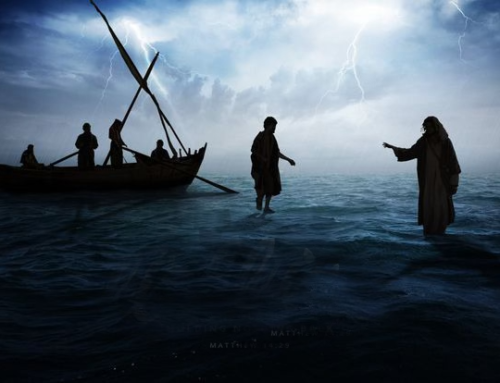Jonah 4
The book of Jonah does not start well nor does it end well. Why? Jonah chooses chutzpah over chus. (pronounced khoos).
It begins with Jonah’s great escape to Tarshish, which lands him in the belly of a great fish. After being re-commissioned, Jonah delivers a message of judgment to the capital city of the Assyrian empire: Ninevah. The Assyrians were a brutal bunch. They would eventually invade the Northern Kingdom, slaughtering thousands of Israelites.
Jonah, whose name means “dove” was afraid of these wicked people. Because of their inhumane practices, I’m sure he hated them. So he delivered the Word of the Lord: “Forty more days and Nineveh will be overthrown.” Jonah must have thought: Finally, they are going to get theirs…40 days until the “eye for an eye” command kicks in.
However, the Ninevites respond to Jonah’s message and repent. God relents. He spares the city. The Hebrew word chus is translated “compassion.” It means to cover — to have pity, to regard, spare. Jonah is angry. He doesn’t want their egregious acts to be covered. He wants them to be exposed. He doesn’t want them to be spared, he wants vengeance. Whenever we are wronged in a deep way, we tend to want the same. Nuke‘em Jesus!
Jonah’s reacts with chutzpah: I knew this is how you would respond! … You are a gracious and compassionate God, slow to anger and abounding in love, a God who relents from sending calamity. (Wait a minute, Jonah – didn’t God just spare you from being fish food?)
Chutzpah is the opposite of chus. It is a Yiddish word that means, to have gall, or nerve. It’s audacious – ie how dare you say something or do something like that. It is brazen presumption. You know what’s best, you know what’s right. Chutzpah has no compassion, because it’s only concern for self. How is this situation going to affect ME?
Jonah’s flare up concludes with this statement: I want to die! God lets that one go. He is concerned about Jonah’s welfare and provides some shade from the scorching sun. The next day God removes the shade as the plant shrivels up. Again Jonah gets angry and uses the same line: “It would be better for me to die than to live.”
In the last two verses of the book God and Jonah carry on an open-ended conversation, which concludes with a question.
10 But the Lord said, “You have been concerned about this plant, though you did not tend it or make it grow. It sprang up overnight and died overnight. 11 And should I not have concern for the great city of Nineveh, in which there are more than a hundred and twenty thousand people who cannot tell their right hand from their left—and also many animals?”
The word for concern is chus. Jonah’s concern is about himself; the plant and the shade it provided. Whereas God’s concern was about the people. About the ones who were spared because they were given an opportunity to change. People who were ignorant, animals who were innocent.
The next time you see God’s mercy extended to someone, instead of flaring up and lashing out, do like Jesus; who looked at the crowds of people, and had compassion – because he saw them a sheep without a shepherd. (Matthew 9:36)
Jonah is the only book in the Bible that ends with a question. I believe Jonah’s question is our question. Shouldn’t we be concerned? (chus) Living in a society where chutzpah is esteemed over compassion, where power trumps pity – it was James, the brother of Jesus who said: Mercy triumphs over judgment.





